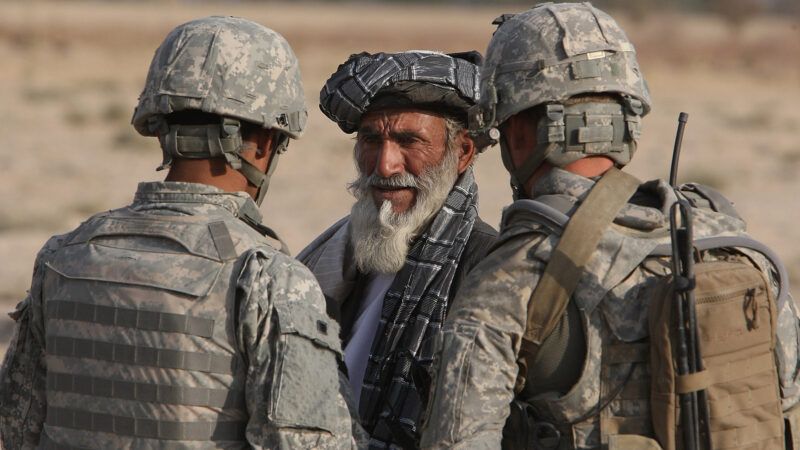Senate Bill Would Help Bring Afghan Interpreters to the U.S.
As the U.S. withdrawal from Afghanistan approaches, the legislation would reform the Afghan interpreters' visa program.

A bipartisan group of senators introduced a bill last week that would improve the special immigrant visa (SIV) program for Afghan interpreters who assisted U.S. troops. With the U.S. military presence in Afghanistan dwindling by the day, many politicians are recognizing the need to get interpreters out of the country quickly.
Interpreters put themselves at great risk to assist American troops. The U.S. government established the SIV program in 2009 to reward interpreters for this "faithful and valuable service." But due to stringent qualifications, a massive application backlog, and administrative errors, many interpreters have found it nearly impossible to access the visas supposedly afforded to them. The average application processing period is now almost three years long.
Lawmakers hope to change that as U.S. troops withdraw from Afghanistan, which is scheduled to be finished by September 11. If passed, the bill would allocate an additional 20,000 visas. That's a significant increase—26,500 SIVs have been allocated since December 2014. The new bill would also change certain eligibility requirements. While interpreters are currently only eligible for SIVs if they served U.S. forces for at least two years, that qualification would be reduced to one year. It would also broaden eligibility to some spouses and dependents of applicants who have been killed.
Though officials stress the importance of quick action, it will take time for the bill to be put to a vote, let alone reach President Joe Biden's desk. Meanwhile, conditions on the ground are making the situation worse. Beginning June 13, the U.S. Embassy in Afghanistan suspended visa operations due to an uptick in COVID-19 cases. Calls for alternative means of processing interpreters—including a massive evacuation to Guam, humanitarian parole, and temporary housing in territories of NATO countries—have grown louder as it becomes clear that the current SIV program will not be capable of operating on as speedy a timeline as the troop withdrawal.
Sen. Angus King (I–Maine) has been an outspoken critic of the long, complicated process that Afghan interpreters must navigate to receive visas. In a call with reporters on Tuesday, King stressed that "this can't be business as usual."
King, who currently serves on the Senate Armed Services Committee, said "you cannot operate in a foreign theater without the cooperation and assistance of its residents there who believe in the cause you're supporting." If the U.S. fails to keep its end of the bargain, and if "there's a major bloodbath after we leave Afghanistan," he worries that our inaction could "come back against us in a future situation to the detriment of our own national security."
"I think the signal it sends is, 'you better not help the Americans, because when the crunch comes, they're gonna abandon you,'" he added.
Reason previously covered the story of Sayed, an Afghan interpreter who fears that he will be murdered by the Taliban if his SIV application isn't processed soon. "I…have no doubt that I will be targeted and get killed," he said. Hundreds of Afghan interpreters and their family members have faced that fate, and many still might. That makes the new legislation all the more urgent.
"History judges you for how you go into a war," said King, "but also how you leave it."


Show Comments (14)